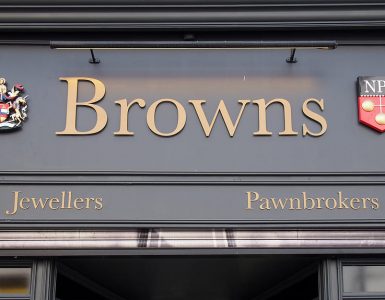Pawnbrokers and payday lenders both offer quick cash, but they are very different. Pawnbrokers lend money using personal items as collateral, while payday loan companies grant you a small loan without requiring any collateral. Pawn Shops also have fixed rates and terms of repayment—something that isn’t available from most payday lenders. But before you decide between using a pawnshop or taking out a payday loan, let’s dive deeper into how these two types of institutions operate:
Pawnbrokers
Pawnbrokers are regulated by the Financial Conduct Authority (FCA), which means they have to operate within certain guidelines. They must be licensed and regulated, but they’re not payday lenders. Pawnbrokers offer loans against items of value — like a diamond ring or gold necklace — that can be sold if you don’t pay back your loan on time.
The FCA’s rules for pawnbrokers include:
- Your item should be worth at least 50% more than what you borrow from them, so if you want to borrow $100 from a pawn shop, then they’ll need to see some sort of proof that your item is worth at least $150 (or more). This helps ensure that people aren’t taking advantage of these types of services by trying to get money for things that aren’t worth very much at all.* The maximum amount any one customer can borrow from one specific store is capped at $2,500 per transaction; however there are no limits on how many times someone could go back over time – so long as each individual transaction stays under this maximum limit.* If someone defaults on an agreement made with a lender then all rights over collateral held by them will automatically pass into possession
Payday Lenders
Payday lenders are for emergencies, not everyday needs. The average APR rate on a payday loan is over 350%, which means you’ll be paying back the principal and interest for years if you don’t pay off your loan early. Payday lenders don’t verify your income or credit history before issuing a loan; instead, they rely solely on information you provide about yourself when filling out their application forms–which means it’s easy to get approved regardless of whether or not you can afford to pay back what you borrow from them!
Payday lenders and pawnbrokers are different in more ways than one.
Payday lenders and pawnbrokers are different in more ways than one. While both offer short-term loans, they differ significantly in their lending practices and fees.
Pawnbrokers lend money using personal items as collateral–for example, you can use your gold jewellery or guitar to get a loan from a pawnshop. Payday lenders charge high APR rates and fees, which often leave the borrower in debt for years on end.
Pawnbrokers lend money using personal items as collateral.
Pawnbrokers lend money using personal items as collateral. They will accept any item that has value and is in good condition, such as jewellery, art, electronics and even cars. Your car can also be used as collateral if it’s paid off and you don’t need it for transportation.
Pawnbrokers offer fixed rates and terms, since you’re borrowing against an item or items that you own.
Pawnbrokers have lower rates and terms than payday lenders. One of the biggest differences between pawnbrokers and payday lenders is that pawn shops offer fixed rates, whereas the rates at a payday lender change from day to day depending on market conditions.
You can also take out a loan against personal items like jewellery or electronics at a pawnshop without having to worry about getting turned down due to bad credit; this isn’t always possible with a traditional bank loan. Additionally, you won’t be charged any hidden fees or interest when you borrow money from a pawnbroker; they tend only charge interest on the amount of time it takes them to sell your item if you don’t pay back what you owe within 30 days (or less).
Payday lenders are for emergencies, not for everyday needs.
Payday lenders are designed to be used in emergencies, not for everyday needs. If you’re thinking of using a payday lender, ask yourself:
- How long will it take me to pay off this loan?
- Do I really need the money now or is there another way out of my situation (like borrowing from friends or family)?
- Can I get a better deal from another source?
Payday lenders charge high APR rates and fees, which often leave the borrower in debt for years.
A payday loan is a short-term loan that must be repaid in full at the borrower’s next payday. Payday lenders charge high interest rates and fees, which often leave the borrower in debt for years. The average annual percentage rate (APR) on payday loans is about 400%, compared to an average APR of about 12% for traditional bank loans.[1]
Payday lenders charge fees for every transaction: when you take out a loan, when you renew it and even when they bounce your check or fail to collect payment from your employer.[2] These charges can add up quickly–and make repayment impossible if not paid off right away.[3] In addition, many states have outlawed some types of these excessive charges while others have passed laws limiting their amount or requiring disclosure before any agreement is made between lender and borrower.[4]
Borrowing from a payday lender carries significant risks and costs.
Payday lenders charge high fees and interest rates. Payday lenders are notorious for charging exorbitant fees, sometimes as much as $50 per $100 borrowed. These costs can add up quickly, especially if you take out multiple loans in a short period of time. The Consumer Financial Protection Bureau found that the average borrower pays back more than triple what they originally took out from payday lenders ($520). In addition to these charges, many states also cap how much interest a lender can charge–but even then it can still be hundreds of percent APR (annual percentage rate), which might seem like a lot until you realise that most credit cards offer 15% APRs or less!
Payday loans aren’t meant for everyday needs like buying groceries or paying rent; they’re designed as short-term solutions for when unexpected expenses arise (like car repairs). However, many borrowers find themselves trapped in an endless cycle of taking out new loans just to pay off old ones–and their debt continues growing until it becomes impossible for them to escape without filing bankruptcy or defaulting on all their debts
We’ve outlined the differences between pawnbrokers and payday lenders, but it’s important to remember that both types of lender can be dangerous. As we mentioned earlier, payday lenders charge high interest rates and fees that can leave borrowers in debt for years. Also, if you default on your loan payments there’s no guarantee that your personal property will be returned to you–even if it’s something as valuable as jewellery or a car! On top of all this, payday loans are designed for emergencies only and should never be used as an everyday source of funds.





Add comment